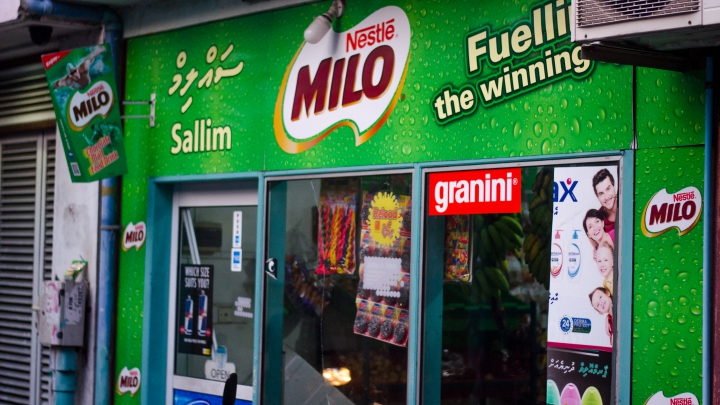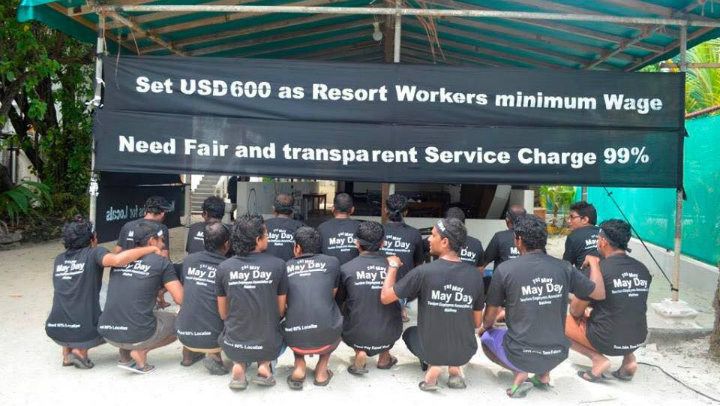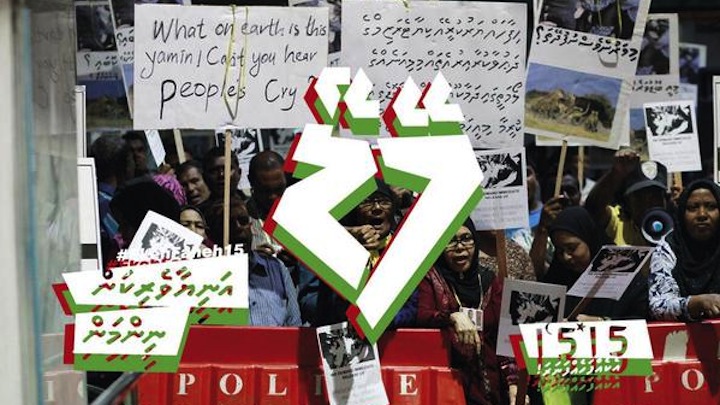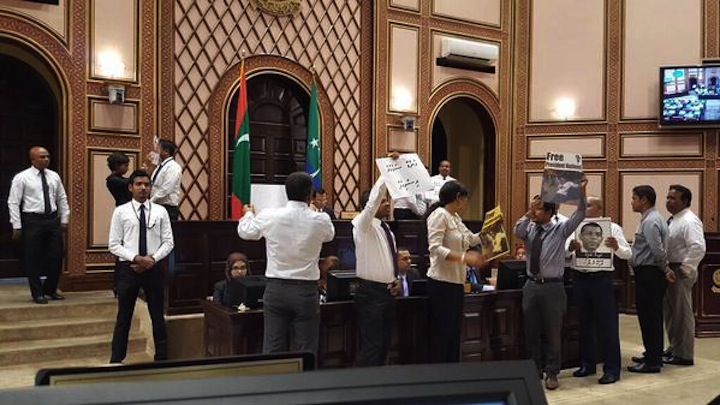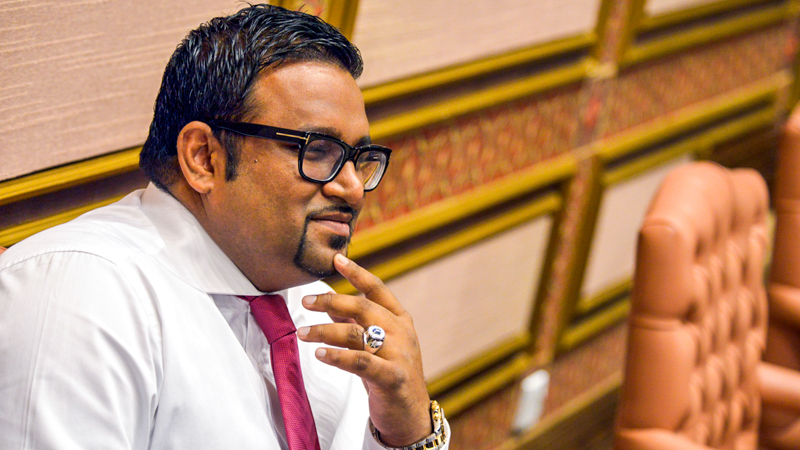The Maldives has obtained a US$20 million grant from Saudi Arabia for budget support, despite official figures indicating record levels of income and the economic ministry saying it has authorised US$600 million worth of foreign investment this year.
Finance minister Abdulla Jihad told Minivan News today that the Saudi funds will be used to “manage cash flow” as revenue was lower than expected.
A large portion of forecast revenue is expected later in the year, he said, adding that shortfalls are currently plugged through sale of treasury bills.
The forecast for government income in this year’s record MVR24.3 billion (US$1.5 billion) budget is MVR21.5 billion (US$1.3 billion).
The projected revenue includes MVR3.4 billion (US$220 million) anticipated from new revenue raising measures, including revisions of import duty rates, the introduction of a “green tax”, acquisition fees from investments in special economic zones (SEZs), and leasing 10 islands for resort development.
Import duties hikes came into effect on April 1. However, three weeks later, the government reversed hikes for motorcycles and garments. Jihad said revenue from custom duties will be lower than expected as a result of the policy reversal.
Jihad also said acquisition fees from SEZs are expected during the second half of the year.
Tax revenue
The Maldives Inland Revenue Authority (MIRA) said today that the revenue collected in April was 6.5 percent above forecasts and 14.9 percent higher than the same period last year.
Total revenue last month reached MVR940.3 million (US$60.9 million), with goods and services tax accounting for 70 percent of income. Total revenue collected so far this year has reached MVR4.6 billion (US$298 million).
The customs authority also collected MVR574 million (US$37 million) during the first quarter of 2015 as import duties, fees, and fines, representing a 28 percent increase from the previous year.
Further figures by the MIRA show revenue from taxes have been higher than expected in the first quarter of 2015.
The central bank, the Maldives Monetary Authority, meanwhile says business activity in the tourism, construction, wholesale, and retail sectors increased during the first quarter of 2015, and expects further improvements in the second quarter.
Foreign investment
The economic development ministry revealed today that it has authorised foreign investments worth nearly US$600 million this year, and says it is expecting US$1.8 billion worth of foreign investments in the next five years
Registrar of companies Mariyam Wisham told the press that most foreign businesses registered between January and April were investors interested in the tourism, construction, and real estate sectors. The investors were mainly from the Middle East, South Asia, and China, she said.
Economic development minister Mohamed Saeed said the number of foreign businesses registered under the current administration showed investor confidence in the Maldives.
Wisham also revealed that 5,014 new small and medium-sized enterprises have been registered so far this year following the enactment of a new company registration law last year.
But the opposition has criticised the lack of significant foreign investments despite assurances from the government following the passage of its flagship SEZ legislation in August last year.
The government signed a Memorandum of Understanding in March with Dubai Ports World to develop a commercial port and free trade zone near Malé and said a joint venture agreement will be signed in a month.
However, Saeed told the press today that an extension has been agreed upon for negotiations, citing the government’s unwillingness to compromise “national issues” as the reason for the delay.
The main opposition Maldivian Democratic Party has alleged corruption in the deal.
Saudi-Maldives relations
HEP Yameen’s state visit to brotherly Saudi Arabia starts materializing as we received US$20 M as budget support. #amazey_yageen
— Mohamed Shainee (@mshainee) May 11, 2015
The Saudi Arabian government had pledged the US$20 million during president Abdulla Yameen’s state visit to the kingdom in March.
Contrary to Jihad’s statement that the Saudi funds will be used to manage cash flow, fisheries minister Dr Mohamed Shainee told Haveeru today that the US$20 million in grant aid will be “spent through the budget on various projects the government wants.”
A delegation including officials from the Saudi Fund for Development as well as Saudi contractors meanwhile visited the Maldives last week and gathered information on the various projects for which the government is seeking loan assistance.
The projects included road construction at the airport, an airport hotel, and a road network for Hulhumalé, Shainee said.
Shainee has previously said the Saudi Arabian government also assured loan assistance to develop the international airport.
During the visit, President Yameen held talks with King Salman bin Abdulaziz Al-Saud and Saudi Arabian ministers for education, defence, petroleum and mineral resources, and finance.
Then-Crown Prince Salman had visited the Maldives in March last year. During the trip, he pledged US$1.2 million to build 10 mosques across the country and donated US$1.5 million and US$1 million, respectively, to the health sector and the Islamic ministry’s waqf fund.
Prince Salman also visited the Maldives in April 2010. He ascended to the Saudi throne in January following the death of King Abdullah bin Abdulaziz.
A joint communique issued during president Yameen’s visit stated that the two sides agreed to increase “their commercial exchange while expanding and enhancing investment between the two countries and extending invitations to their respective private sectors to explore the available investment opportunities in both countries.”
“The Saudi Fund for Development will continue to finance the development projects in the Republic of Maldives and will consider participating in the expansion of Malé airport and beach preservation in Hulhumalé,” it added.
 (0)Dislikes
(0)Dislikes (0)
(0)

